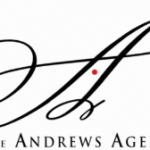
by Olivia Toliver
What student organizations have you managed social media for, and how did each program have unique needs?
I am the current Vice President of Marketing for Belmont University’s chapter of Alpha Gamma Delta. This position oversees all social media and merchandising efforts. Previously, I was the Director of Social Media for Alpha Gamma Delta. Being in charge of a sorority’s social media efforts is very exciting because you have the opportunity to shape and strengthen both the relationships within the chapter and within the community. This positon can be overwhelming at times, which is why I have made it a priority to create content calendars to keep up with it all.
I also spent a year serving as the Digital Marketing Specialst for the Wishes Foundation, a non-profit founded by two Belmont graduates. This organization has a very specific and unique mission and it was during my time serving the Wishes Foundation that I discovered my passion for branding.
Finally, I spent two semesters as an Associate for Tower Creative Communications, a student-ran public relations firm on campus. In this positions, I was able to upload a few social media posts and help build the new brand of TCC.
How has managing these accounts prepared you for internships and other work?
I feel extremely prepared for work after college because of the opportunities I’ve had the honor of having these past few years. Specifically, my position within Alpha Gam has prepared me for the large workload that comes after graduation as well as working efficiently with a team. Life after college will come with several surprises and challenges, but I’m grateful to feel a little more prepared due to the amazing opportunities I’ve had at Belmont University.
What’s your favorite part about creating a cohesive brand for an organization?
I enjoy getting to know the values and mission of an organization and working with them to build a unique brand, tailored to them. Color psychology is always so fun to research and it comes in handy when creating a brand for an organization. I also love playing around with different styles of language and seeing what tone works best for each organization I represent through social media.
What role do you think social media has played in student life during the pandemic where fewer in-person events are accessible to students?
I would argue that social media has become essential to everyone this year because social media offers everyone a way to directly communicate with one another, even if you’re not face-to-face. On a personal level, I used social media as a way to stay connected to my friends and family during one of the hardest years that anyone has experienced. This same concept applied directly to my work within Alpha Gam. For a year, we have not been able to experience anything together in-person.
Therefore, social media became one of the most important ways for students to feel engaged and connected to the organization. It was a very challenging time because we needed to post more content than ever before in order to feel connected, however, content was almost impossible to find. My team and I used live streams, takeovers, and spotlights as ways to keep everyone within the chapter engaged and to make them feel important. It can be so difficult to feel significant in a such a chaotic time, so we made an effort to show our members how important they truly are through social media.
Olivia Toliver is a junior at Belmont University double majoring in Public Relations and Creative and Entertainment Industries. She has a passion for creating, implementing and maintaining unique and personalized brands through digital marketing.















